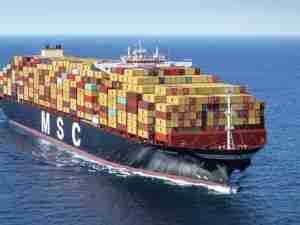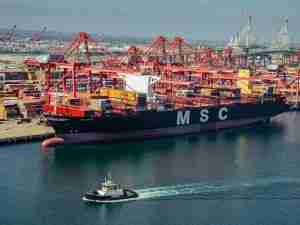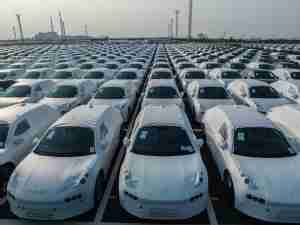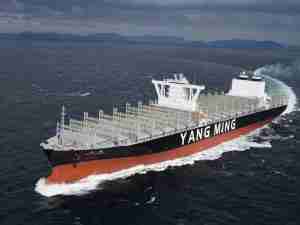Rio Tinto became the latest miner on Friday to dump annual price-fixing.
"It will create a bit more confusion in the freight market because we are going to see a lot more spot cargoes and a lot more spot trading," FIS broker Andrew Dawson said.
The Baltic Exchange's main sea freight index has remained erratic this year, as it did in 2009, because of swings in Chinese demand for iron ore, the primary ingredient of steel.
Capesize ships typically haul 150,000-tonne cargoes such as iron ore and activity has been subdued in recent days amid uncertainty over the pricing changes.
The world's top miner Vale and BHP Billiton have both said they have moved most of their iron ore sales to quarterly contracts. Together with Rio Tinto, the trio controls about two thirds of the total seaborne iron ore trade.
"We might have a situation where you have got more people in the market for the same cargoes which tends to push the market up a little bit in the short-term -- especially for the first couple of months until everything settles down," Dawson said.
The explosion of China's steel sector, growth of the spot market and a spate of Chinese defaults on contracted ore two years ago has increased mining groups' resolve to move away from an annual benchmark price system.
"Quarterly pricing is likely to lead to volatile fixture activity, particularly on capes, in reaction to price differentials between spot and contract earnings," Will Fray, shipping analyst with consultants MSI said.
"If mills are successfully passing on higher costs to customers then that bodes well for both ore prices and freight rates, but if the increases are knocked back, i.e. steel sales suffer, then that could provide an upper limit."
China, the world's largest buyer of imported iron ore from Brazil and Australia, was expressing support for the old benchmark system.
Oversupply
Barclays Capital analyst Amrita Sen did not expect much of a slowdown in imports by China given shortages of iron ore.
"If they are inherently short of iron ore and your steel industry is booming at the rate the Chinese are you don't have much of a choice except to import at whatever the price is," she said.
China had been importing lower iron ore grades in smaller cargo sizes from India on supramax vessels in recent days.
But trade sources said China's iron ore trading association has banned its members from importing ore with less than 60 percent iron content.
"The ban on importing low grade iron ore will be overall positive for capes since most of the poor quality ores were shipped out of India using supramaxes," Sen said, adding that long haul shipments were better for the capesize market.
Analysts said ship oversupply pressures were likely to weigh on any short-term capesize gains.
"With so many ships scheduled to come into the market this year there'll need to be huge swings to generate significant freight rate peaks higher on average," MSI's Fray said. (Reuters)










